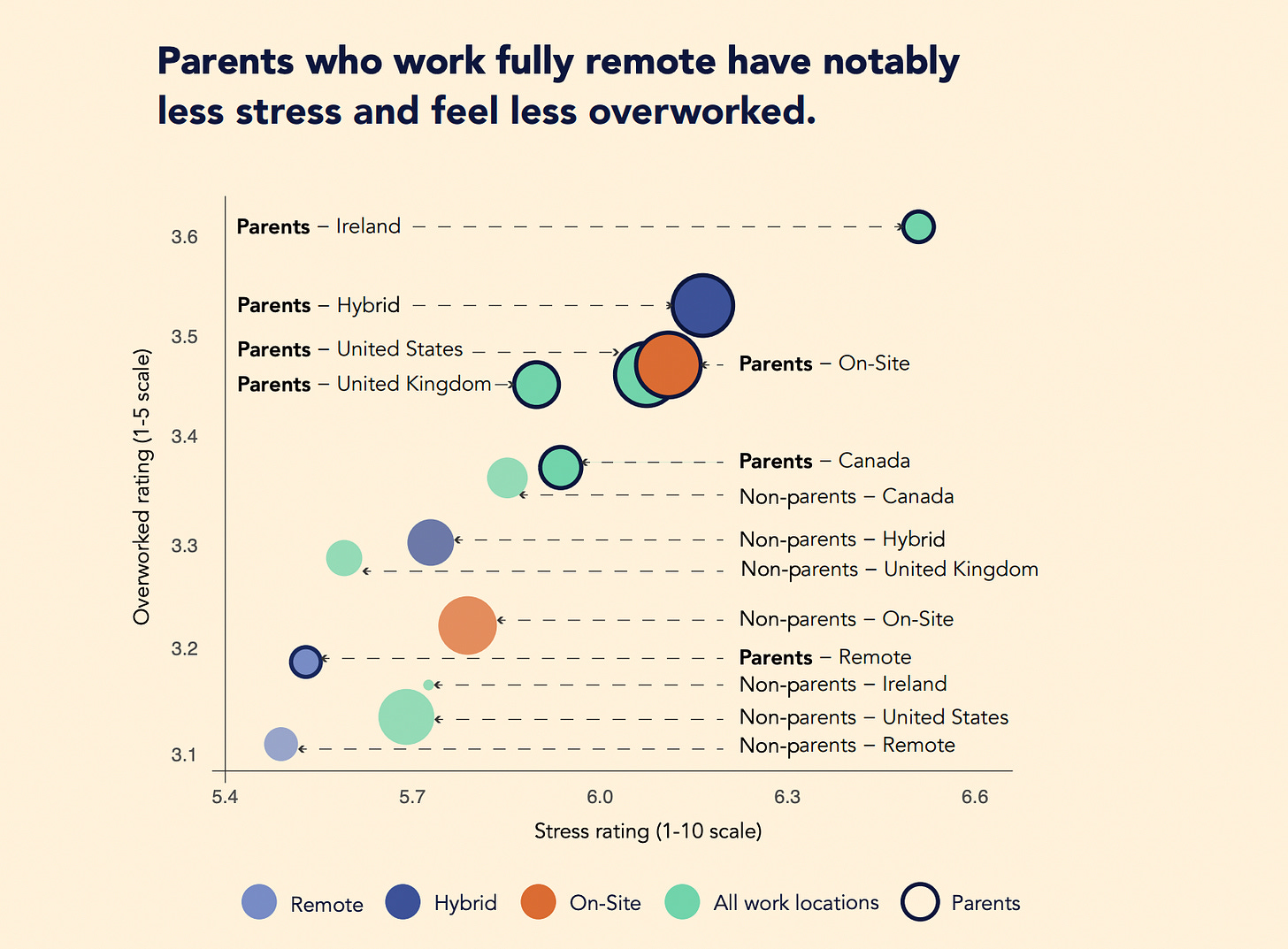The more open-minded you are, the luckier you become. Why a 'hook strategy' unlocks new opportunities when pivoting your career
Future Work/Life #78
Future Work/Life is my newsletter in which I explore the changing relationship between work and our personal lives. Every week, I share something I’ve written, a few things I’ve enjoyed reading, and something great to listen to. If you find it interesting, please share it!
Last week, I said the book was 75% complete. I’d say that’s moved up to 79%, so steady progress.
I’ve continued testing some of the key themes from the book, and today I’m sharing another article, which has gone down well.
In other news, series seven of the podcast will be launching this week, and I’m changing the format and frequency of this newsletter a little. From this Wednesday, I’ll share every episode of the podcast with you via the newsletter. On Sundays, I’ll stick to five weekly highlights that I think you’ll find interesting - something thing I’ve written, three things I’ve read, and one podcast I’ve enjoyed I’ve listened to.
I hope you enjoy reading. If so, I’d love it if you could share today’s newsletter with at least one other person.
Thanks, as ever, and have a great week!
Ollie
The Writing:
"Some people have all the luck." True, but only because they cultivate a 'serendipity mindset.'
Pivoting your career can often be scary and overwhelming. Sometimes you need to just catch a break. The good news is that you can increase your chances of being lucky by opening yourself up to the unexpected and making accidents meaningful.
Creating more opportunities for serendipity in your life is all about having an open mind and being led by your curiosity.
One simple way to start is by using the 'hook strategy'. Using 'serendipity hooks' gives people the chance to learn more about you and allows them the possibility to make connections between your interests and experiences and their own. To do this, think differently about how you respond to and ask questions.
Let's use that tired conversation opener, "what do you do?" to illustrate:
Asking questions:
Instead of resorting to a question that will only reveal someone's day job, consider asking them, "what do you enjoy doing?", or "how are you feeling today?".
Or, if you really want to stretch the limits, follow writer David Sedaris' lead with obscure questions like, "when was the last time you touched a monkey," which, in his case, elicited the reply, "oh, you can smell it on me?"
Responding to questions:
While you might share what you do for work, volunteer some more information to give your new acquaintance a sense of who you really are.
In his book about serendipity, Christian Busch shares a great example - "I love connecting people, have been active in the education sector, and recently started thinking about philosophy, but what I really enjoy is playing the piano."
The 'hook strategy' allows people to discover what they find interesting about you and vice-versa.
To get luckier, all it takes is being open-minded about trying new things and making new connections.
The Reading:
Is this the way things will go in the future? In this LinkedIn post, Basecamp CEO, Jason Fried, describes how their fully distributed team got together for the first time in 2.5 years. Basecamp has always operated this way, but how soon before this becomes the norm? According to Fried:
“As it turns out, meeting infrequently makes those actual encounters far more meaningful. We didn't spend the time together, we savored it. Scarcity has its way of making every moment that much more valuable. If we were always together, a meetup or offsite would have felt like more like a forced chore.”
As Basecamp’s experience suggests, two years into predominantly remote working, many people are desperate for more human connection. This comprehensive study of 2,268 full-time workers across the U.S., U.K., Canada, and Ireland by Workhuman “explores the state of human connection at work, providing proof points and practical advice for HR and business leaders to create magnetic, human-centered work cultures.”
Among the more interesting findings are those related to emotional health and the experience of parents:
Some people don’t like the phrase ‘The Great Resignation’. I’ve heard various alternatives offered, including ‘The Great Reassessment’ and ‘The Great Aspiration’. The thing is, as this report shows, there has been an increase in resignations over the past 18 months. The question is, why and where are the resignees going? Based on the data:
“The chart below shows that resignations rose sharply from the end of 2020 and significantly exceeded their pre-pandemic levels in the final quarter of 2021.
However this is not because workers decided to abandon work and leave the labour force. Instead, we are seeing a rise in workers resigning primarily to start new jobs for other employers. The only age group where there has been an increase in people leaving the labour force has been among the over-50s, who have been retiring in larger numbers than normal.”
The Listening:
For some deeper analysis of what’s provoking ‘The Great Resignation’, it’s worth considering why people are so unhappy at work. HBR have just started a mini-series featuring researcher Marcus Buckingham, which “into the data showing why people feel so disengaged and what they feel is missing from their work.”
Among the headlines in episode one, less than 20% of people were fully engaged with their work before Covid, and it’s only gotten worse since then!







